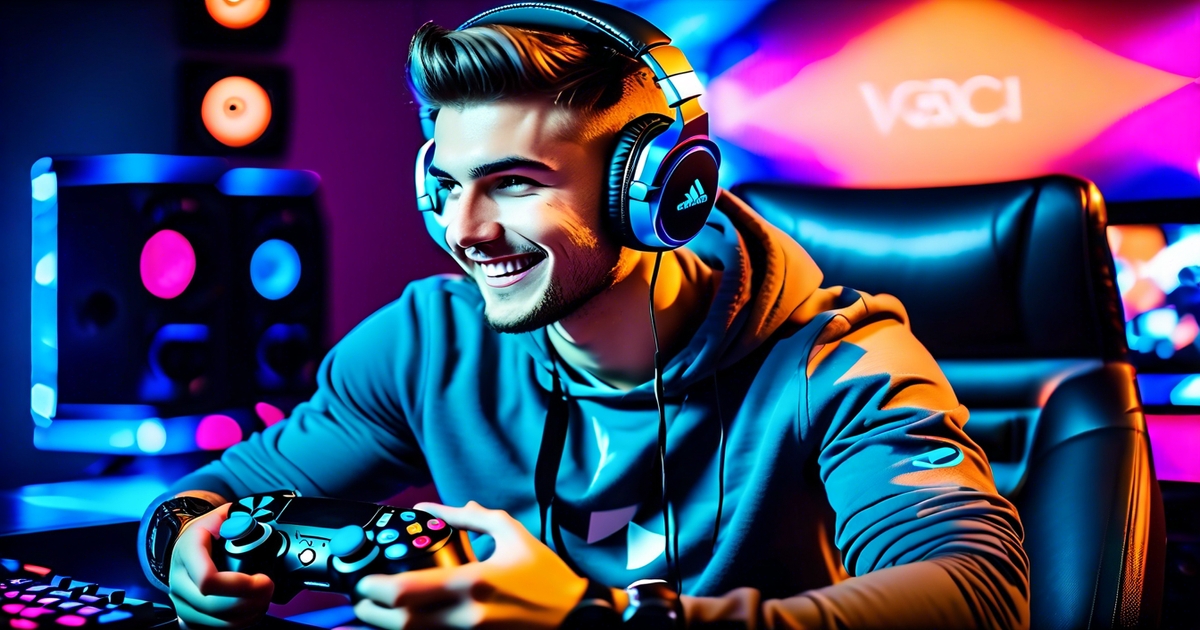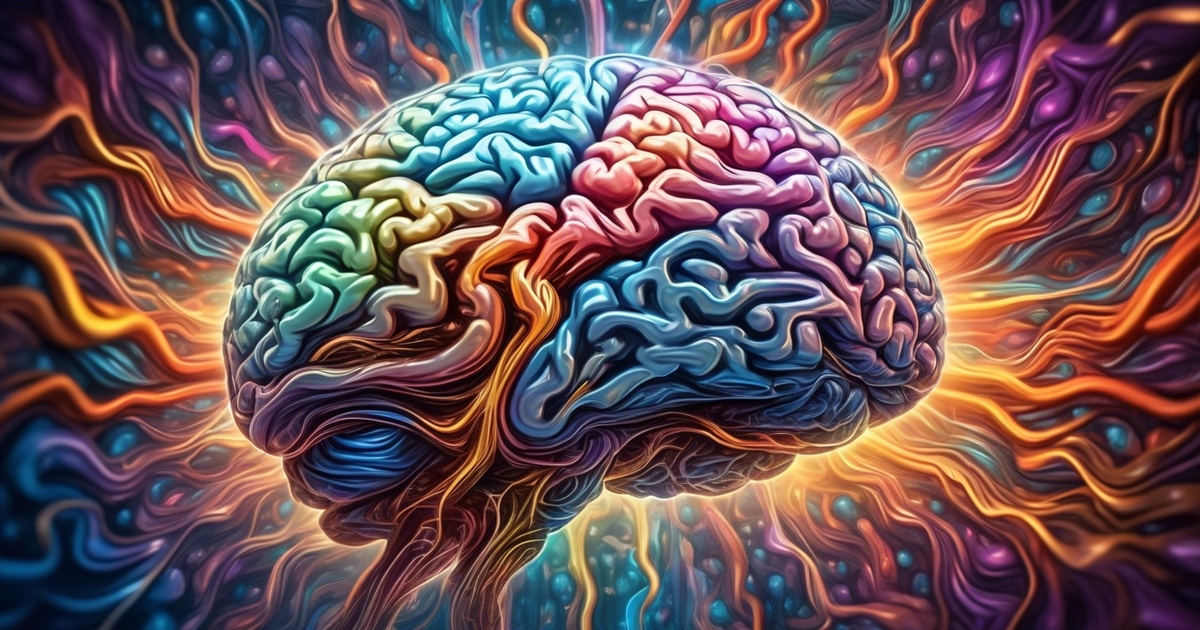10 Benefits of Gaming on Mental Health (If Done Right)

- Key Takeaways
- 1. Enhanced Problem-Solving Skills
- 2. Stress Relief and Relaxation
- 3. Improved Cognitive Flexibility
- 4. Social Connection and Teamwork
- 5. Mood Elevation and Positive Emotion
- 6. Increased Focus and Attention
- 7. Development of Resilience
- 8. Better Multitasking Abilities
- 9. Growth in Creativity and Imagination
- 10. Educational Benefits and Skill Development
- Closing Thoughts
- Frequently Asked Questions
Playing video games has always been seen as something negative and never beneficial. Many think it’s a complete waste of time. However, gaming, when done right (moderately, not excessively) can come with several mental health benefits.
Scroll down to learn the top 10 mental health benefits of playing video games.
Key Takeaways
- Gaming can enhance problem-solving skills by presenting players with complex challenges and encouraging them to find creative solutions, which can be applied to real-life situations.
- Engaging in gaming activities can provide stress relief and relaxation, offering a break from daily pressures and contributing to improved mental well-being.
- The cognitive flexibility developed through gaming can lead to improved adaptability and the ability to switch between different tasks or thought processes more effectively.
- Gaming fosters social connection and teamwork, promoting a sense of community and cooperation that can positively impact mental health and overall happiness.
- The positive emotions and mood elevation experienced during gaming can contribute to a more positive outlook and emotional well-being.
- The increased focus and attention required in gaming can translate to improved concentration and attention span in other areas of life.
1. Enhanced Problem-Solving Skills

Gamers develop critical thinking and decision-making abilities as they strategize within the game environment. Research has shown that gaming requires quick problem-solving under pressure, which can translate to improved competence in real-life situations. For instance, a study published in the journal “Psychology of Popular Media Culture” found that individuals who played action video games demonstrated enhanced cognitive flexibility and adaptive problem-solving skills.
Players learn to adapt and find solutions in complex scenarios, which can positively impact their work and personal lives. This development of new skills through gaming aligns with the potential positive outcomes for mental health, as it fosters an individual’s ability to tackle challenges effectively.
2. Stress Relief and Relaxation

Gaming offers a valuable escape from the daily stressors of life. Immersive gameplay provides an effective way to unwind, allowing individuals to temporarily disconnect from their worries and anxieties. According to a study published in the American Journal of Preventive Medicine, engaging in video games is associated with lower levels of depression and higher overall well-being.
The interactive nature of gaming can be particularly beneficial for reducing stress levels. By focusing on game objectives and challenges, players can redirect their attention away from sources of anxiety, promoting relaxation. Research conducted by Oxford University has shown that playing video games for a short period each day could be linked to improved mental health.
Moreover, gaming serves as an accessible form of therapy for individuals dealing with stress or anxiety. The ability to immerse oneself in virtual worlds allows for a much-needed break from real-life pressures. This escapism enables gamers to find respite from overwhelming thoughts and emotions.
3. Improved Cognitive Flexibility

Gamers enhance their ability to switch between tasks seamlessly. This is due to the constant need to adapt and respond quickly in video games, which helps train the brain to process information rapidly. Research has shown that individuals who regularly play video games exhibit improved cognitive adaptability, allowing them to think more flexibly and creatively.
One study published in the journal “Psychology of Popular Media Culture” found that action video game players demonstrated enhanced cognitive flexibility compared to non-players. The fast-paced nature of many video games requires gamers to make split-second decisions and constantly shift their attention, contributing to improved mental agility.
A report from the American Psychological Association suggests that certain types of gaming can lead to positive psychological outcomes such as increased cognitive flexibility and problem-solving skills. This indicates that gaming not only provides entertainment but also offers tangible mental well-being benefits.
In another study conducted by researchers at Queen Mary University of London, it was observed that playing certain types of video games could improve participants’ performance on tasks measuring cognitive flexibility. These findings support the idea that gaming can have a positive impact on psychological outcome variables related to cognitive function.
4. Social Connection and Teamwork

Multiplayer games offer a platform for developing teamwork and collaboration skills, as players must work together to achieve objectives, strategize, and communicate effectively. This fosters essential social interaction in a virtual environment.
Online gaming platforms provide unique opportunities for individuals to engage in social interactions with like-minded people from different parts of the world. Gamers can form meaningful relationships with others who share similar interests and passions.
Gamers often build strong connections within their online gaming communities, forming friendships that extend beyond the virtual realm into real life. These relationships are built on trust, support, and engagement, offering players a sense of belonging and camaraderie.
In multiplayer games, players learn to rely on each other’s strengths while compensating for weaknesses—a reflection of how teamwork operates in real-life scenarios. Through these experiences, gamers acquire valuable interpersonal skills that can positively impact their personal relationships outside of the gaming world.
The collaborative nature of multiplayer games encourages individuals to work together towards common goals while fostering an environment where communication and cooperation are paramount.
5. Mood Elevation and Positive Emotion
Gaming triggers the release of endorphins, which are neurotransmitters that act as natural painkillers and mood elevators. This release enhances mood, leading to a sense of well-being and happiness.
Enjoyable gaming experiences contribute significantly to positive emotional states by providing an avenue for relaxation, escapism, and achievement. Engaging in games that align with personal interests can lead to increased feelings of joy and contentment.
Immersion in gaming leads to heightened feelings of joy and satisfaction due to the sense of accomplishment derived from progressing through levels or achieving goals within the game environment. This not only fosters positive emotions but also aids in emotional regulation by offering a healthy outlet for stress relief.
Studies have shown that individuals who engage in regular gaming activities report higher levels of life satisfaction and happiness compared to non-gamers. For example, research published in the journal Computers in Human Behavior found that adolescents who played video games exhibited lower levels of depression than those who did not engage in gaming activities.
6. Increased Focus and Attention
Gamers develop heightened focus and concentration abilities through regular gaming sessions. This is because many video games demand sustained attention to complete tasks, solve puzzles, or achieve objectives. Over time, this can lead to improved focus in other areas of life as well.
Players exhibit enhanced attentional control through regular gaming. Studies have shown that action video game players display better performance in attentional blink tasks compared to non-players. This ability to quickly shift their focus from one stimulus to another can be a valuable skill in various real-world scenarios such as driving or multitasking at work.
The fast-paced nature of many games requires players to make split-second decisions and react swiftly to changes within the game environment. This constant need for quick thinking helps improve cognitive flexibility and decision-making skills.
Furthermore, certain types of games like puzzle-solving or strategy-based games necessitate deep critical thinking and planning ahead, which can contribute positively to enhancing problem-solving abilities outside of the gaming context.
7. Development of Resilience
Facing challenges in games builds resilience and perseverance. Gamers are constantly presented with obstacles, puzzles, and opponents that require strategic thinking and problem-solving skills to overcome. As a result, they develop the ability to persist in the face of adversity.
Overcoming setbacks in gaming fosters mental toughness. Whether it’s failing to reach a certain level or losing a match, gamers learn to cope with disappointment and continue striving for success. This process mirrors real-life experiences where individuals encounter hardships but must persevere despite them.
Gamers learn to bounce back from failures, developing resilience. In multiplayer games especially, players often face defeat before achieving victory. This teaches them how to adapt their strategies and mindset after encountering grief or defeat, ultimately strengthening their ability to handle life’s challenges.
Studies have shown that gaming can enhance psychological resilience by providing individuals with opportunities for mastery experiences – instances where they can gain confidence through overcoming difficulties. These findings suggest that engaging in gaming activities may contribute positively to an individual’s mental well-being by fostering qualities such as resilience.
8. Better Multitasking Abilities
Gaming is a unique activity that demands the simultaneous management of multiple tasks. Players are often required to navigate complex environments, solve puzzles, and make split-second decisions while keeping track of various in-game resources. Through this process, gamers naturally enhance their multitasking skills by handling these diverse activities concurrently.
Research has shown that individuals who engage in gaming demonstrate improved ability to juggle different tasks effectively in real-life scenarios. A study published in the journal Nature found that action video game players exhibited better performance on tasks involving multitasking compared to non-players. This indicates that the cognitive demands of gaming can translate into tangible benefits for multitasking abilities beyond the virtual world.
Moreover, certain genres of games such as strategy or role-playing games necessitate players to manage numerous aspects simultaneously, further honing their capacity for multitasking. For instance, managing resources, coordinating team members, and making tactical decisions all at once are common requirements within these types of games.
9. Growth in Creativity and Imagination
Video games offer a platform for creative problem-solving, as players often encounter complex challenges that require innovative solutions. For instance, puzzle-based games like “Portal” or “The Witness” prompt individuals to think critically and creatively to progress through levels, fostering cognitive flexibility and inventive thinking.
Immersive storytelling in video games can ignite imagination by presenting captivating narratives and fantastical worlds. Games like “The Legend of Zelda: Breath of the Wild” or “Journey” immerse players in visually stunning environments, encouraging them to explore and engage with imaginative scenarios.
Moreover, the interactive nature of gaming allows young people to exercise their creativity actively. In sandbox-style games such as “Minecraft,” players have the freedom to build entire virtual worlds from scratch using their imaginations. This not only nurtures creativity but also enhances spatial reasoning skills.
Certain genres like role-playing games (RPGs) enable individuals to craft unique characters with distinct personalities and backstories, promoting self-expression and imaginative storytelling within the game’s framework.
10. Educational Benefits and Skill Development
Certain games go beyond entertainment, offering educational content that can enhance learning outcomes. For instance, puzzle or strategy games often require critical thinking and problem-solving skills, which can be beneficial for cognitive development. Moreover, simulation games like “SimCity” or “Minecraft” provide opportunities for creativity and resource management.
Gaming has been shown to improve specific skills such as hand-eye coordination or spatial awareness. Research published in the journal Nature showed that action video game players had enhanced visual attention compared to non-players. This suggests that gaming could have positive benefits on cognitive abilities.
Gamers acquire knowledge and expertise relevant to game contexts through immersive gameplay experiences. They learn about historical events in historically accurate games or gain insights into various cultures through role-playing games set in different time periods.
Closing Thoughts
The benefits of gaming on mental health are diverse and impactful. From enhanced problem-solving skills to stress relief and improved cognitive flexibility, gaming offers a multifaceted approach to promoting mental well-being. The social connections and teamwork fostered through gaming, along with the elevation of mood and increased focus, contribute to a holistic positive impact on mental health. Furthermore, the development of resilience, better multitasking abilities, and growth in creativity and imagination highlight the educational and skill development aspects of gaming that can benefit mental well-being.
Incorporating gaming into one’s routine, alongside other healthy habits, can be a proactive step towards supporting mental health. Whether it’s engaging in collaborative gameplay or enjoying single-player experiences, individuals can harness the diverse benefits of gaming to promote their overall well-being.
Frequently Asked Questions
What are the educational benefits of gaming on mental health?
Gaming can enhance cognitive skills, problem-solving abilities, and creativity. It also promotes skill development, strategic thinking, and decision-making. These benefits contribute to improved mental acuity and overall well-being.
How does gaming contribute to stress relief and relaxation?
Engaging in gaming activities provides an enjoyable escape from daily stressors. The immersive nature of games distracts the mind from worries, promoting relaxation and reducing anxiety levels. This can lead to a more positive mood and improved mental well-being.
Can gaming help in developing resilience?
Through overcoming challenges within games, individuals can develop resilience by learning to persevere through difficult situations. This translates into real-life scenarios where individuals become better equipped to handle adversity and bounce back from setbacks.
What role does social connection play in gaming’s impact on mental health?
Multiplayer games foster social interaction, teamwork, and collaboration among players. This sense of community creates opportunities for meaningful connections that can positively impact one’s mental health by reducing feelings of isolation or loneliness.
How does gaming contribute to improved focus and attention?
The interactive nature of games requires players to maintain concentration over extended periods. This helps improve focus, attention span, and the ability to block out distractions – skills that are transferable to various aspects of everyday life.
